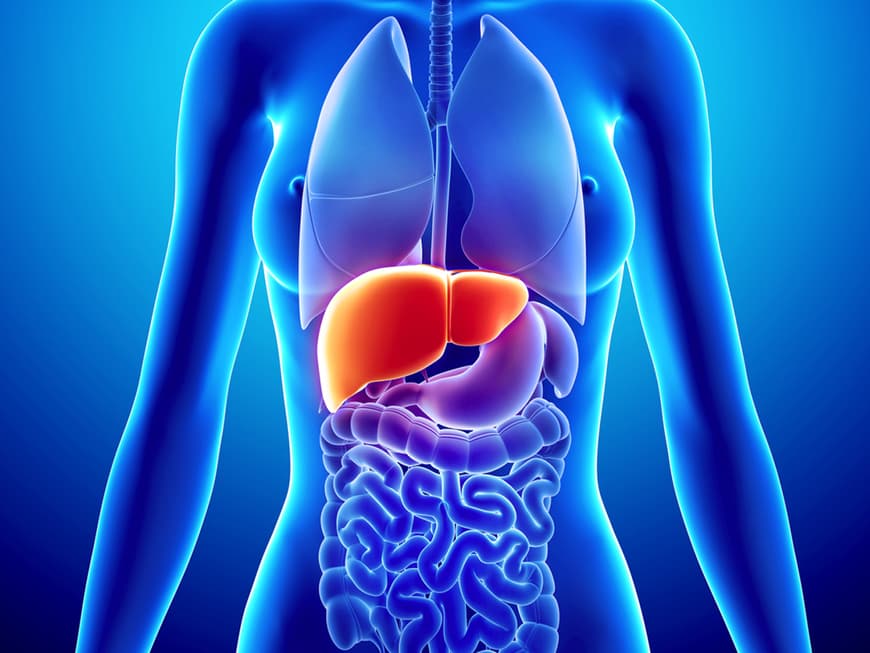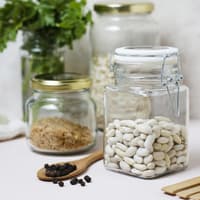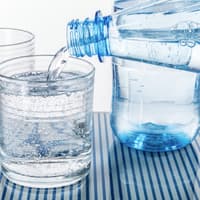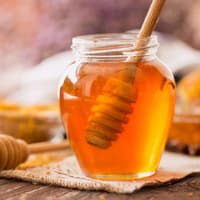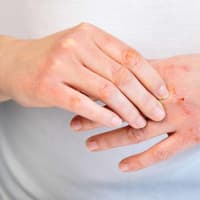Our liver produces around 800 milliliters of bile every day. It is released from the gallbladder into the duodenum, the beginning of the small intestine, as required, where it helps to break down the fats ingested with food so that they are available to the body as a source of energy.
Incorrect diet: liver also burdened by sugar
However, if we consume too many fats in our diet and at the same time drink alcohol, perhaps smoke or come into contact with toxins such as heavy metals, the liver's capacity reaches its limits. "The dietary fats then enter the large intestine undigested, where they are fermented by bacteria and trigger the dyspeptic symptoms described above through increased gas formation," explains health expert Prof. Hademar Bankhofer.
However, it is not only the digestion of large amounts of fat or a poor diet that overburdens the liver. Too much sugar can also pose a considerable risk to liver health. And sugar traps are lurking everywhere, not just in delicious cakes and cookies. A glass of cola, for example, has a sugar content equivalent to twelve sugar cubes. An average fruit yoghurt contains six sugar cubes, and 100 grams of ketchup (equivalent to around six to seven tablespoons) contains nine.
Fatigue is the liver's pain when we eat the wrong food
To relieve the liver, we should avoid foods high in fat and sugar and avoid alcohol. A diet rich in bitter substances (e.g. in chicory, grapefruit, many herbs) or preparations containing bitter substances can stimulate bile production and thus prevent undigested dietary fats from entering the large intestine, where they are fermented by bacteria to form gas.
Incidentally, the fact that a liver is permanently overloaded can manifest itself not only in the symptoms mentioned above. Leaden tiredness and listlessness are often an indication of this. "This tiredness is the 'pain of the liver', so to speak," says Prof. Bankhofer. "Because the liver itself is not able to signal its overload to us by means of pain impulses."
A fatty liver is by no means harmless
Although our liver is a very robust organ, a so-called fatty liver can develop as a result of permanent overload. Many people think that alcohol is usually to blame. However, a fatty liver is often caused by being overweight or obese. If we consume too many fats and carbohydrates in our diet - some of which the liver also converts into fats - the liver can no longer process and remove them completely. It then stores the fats.
In addition, fatty tissue in the body - especially abdominal fat - forms fatty acids, which are released and also enter the liver, contributing to its fatty degeneration. A fatty liver is often considered harmless. But it can have dangerous consequences. In a third of patients with a fatty liver, the organ becomes inflamed, resulting in fatty liver hepatitis.
If this is not recognized and treated in time, the inflammation can lead to liver cirrhosis. The cells of the metabolic organ die, the liver becomes scarred and shrinks. Eventually, it can no longer fulfill its function at all.
Protect the liver with a balanced diet
Ultimately, only a consistent change in lifestyle can help against a fatty liver. The good news is that if you do something about fatty liver in good time, you give the organ the chance to fully recover. If excessive alcohol consumption is to blame for the increased fat storage, those affected should avoid alcohol completely in future.
Long-term weight loss, not a zero diet
If being overweight led to a fatty liver, you should change your diet and exercise regularly. If you manage to lose weight in this way, your liver will also lose weight, so to speak. However, starvation diets or zero diets to lose weight quickly are not recommended. This is because they put a lot of strain on the liver. Long-term, slow weight reduction is therefore advisable. You can find tips for healthy weight loss here.
The diet should be low in fat and focus on vegetable fats. It is also important to eat the right carbohydrates. Avoid fast-digesting sugars such as those found in sweets, cakes, soft drinks and white bread. It is better to replace these with wholemeal products more often. And if it has to be sweet: Treat yourself consciously, don't snack on the side.
And drink as little alcohol as possible - it not only puts a strain on the liver, but also has a lot of calories. If you want to protect your liver and do something good for a change, you can try to give up alcohol and sugar completely for 21 days after the holidays and reduce your fat consumption to zero. This is because a liver can recover well during this period.


